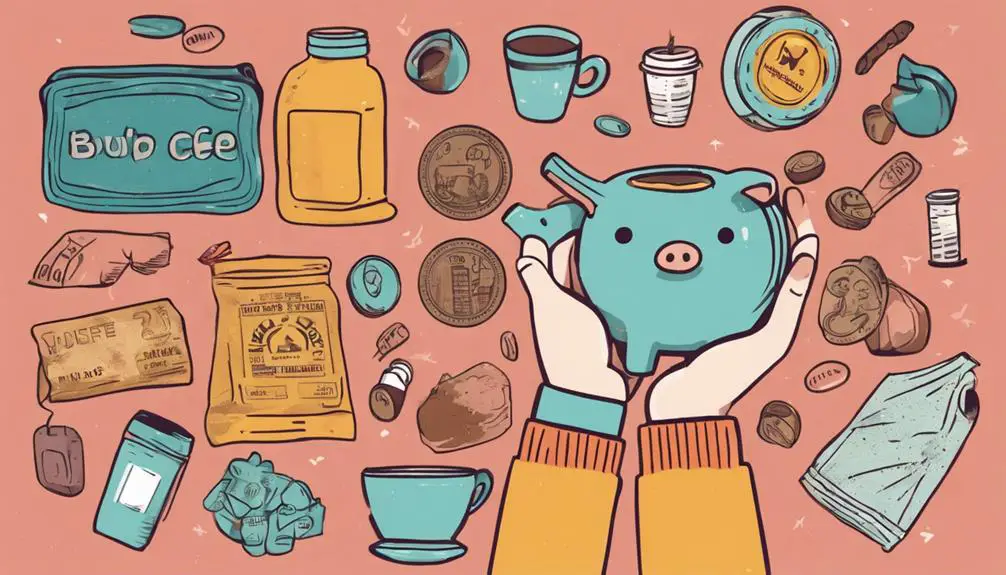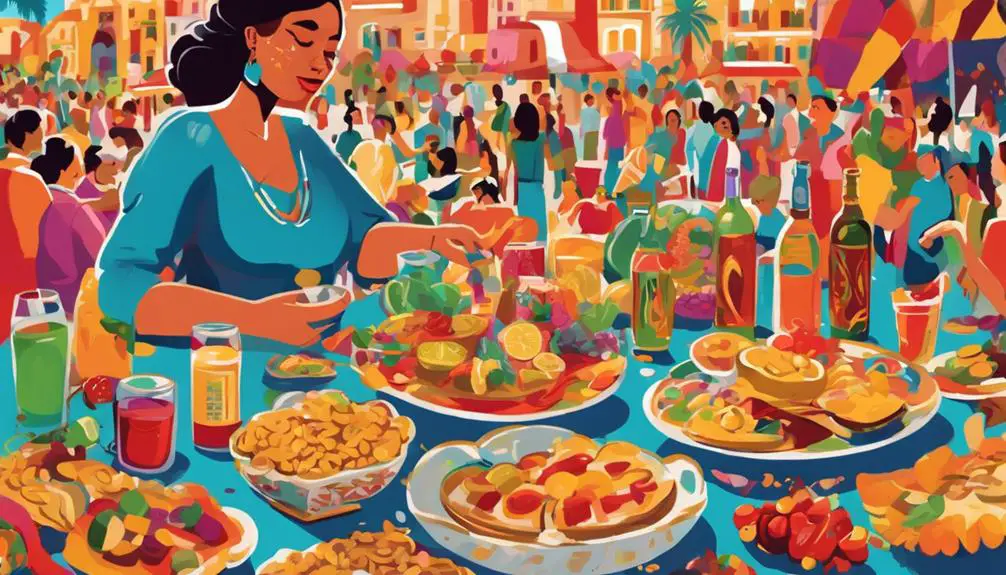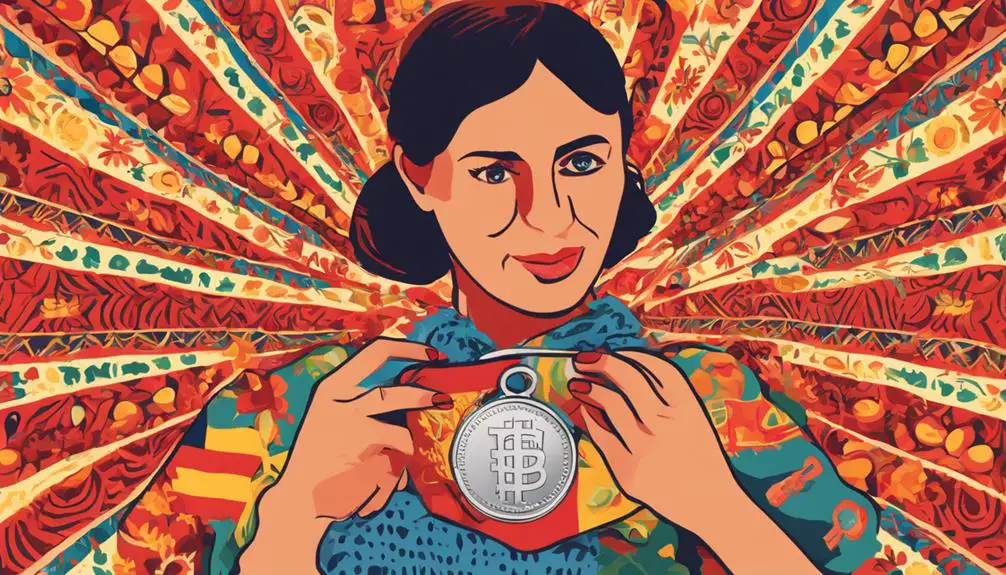You've likely stumbled upon the term 'tacaño' in Spanish conversations, which refers to someone who's extremely frugal, bordering on stingy. But what's behind this mindset? Born from economic scarcity and social hierarchies, tacaño culture developed as a response to making ends meet. It's not just about being cheap, but about being resourceful and resilient. You may have encountered tacaños in your daily life, and while their extreme frugality can be frustrating, it can also offer valuable financial management tips. As you explore this complex aspect of Spanish culture, you'll uncover the significance of tacaño pride and its impact on everyday life.
Origins of the Tacaño Mindset

As you explore the world of Spanish slang, you'll discover that the tacaño mindset has its roots in the country's complex history, where economic scarcity and social hierarchies have shaped the behavior of thrifty individuals. The historical roots of tacañería can be traced back to the post-civil war era, when economic instability and poverty were rampant.
In response, people developed a culture of thriftiness, where every peseta counted. This mindset was further reinforced by the country's strong social hierarchies, where access to resources was limited for the working class. As a result, the tacaño mindset became a necessary tool for survival, where every resource was carefully managed to make ends meet.
Cultural influences also played a significant role in shaping the tacaño mindset. The strong influence of Catholicism, for instance, emphasized the importance of frugality and humility. Additionally, the country's agricultural heritage, where resources were scarce and unpredictable, further reinforced the need for thriftiness.
As you explore further into the world of Spanish slang, you'll discover how these historical and cultural influences have shaped the tacaño mindset, making it an integral part of Spanish culture and identity.
When Frugality Becomes Annoying
When dealing with tacaños, their extreme frugality can quickly become annoying when you're on the receiving end of their penny-pinching ways even though you might admire their resourcefulness. You might find yourself stuck with the bill or feeling pressured to split costs unfairly. It's frustrating when your Frugal Frenemies expect you to foot the bill or compromise on activities because they're too cheap to participate.
Penny Pincher Problems can arise in social situations, too. Imagine planning a group dinner, only to have a tacaño insist on splitting the bill down to the last cent, or worse, expecting others to cover their share. Their extreme frugality can lead to awkwardness and tension, making you question the value of the friendship. You begin to wonder if their thriftiness is worth the emotional cost.
When frugality becomes annoying, establishing boundaries and communicating your concerns is crucial. By doing so, you can maintain healthy relationships while avoiding the stress and resentment that comes with dealing with overly stingy friends.
The Tacaño in Everyday Life

You've likely encountered a tacaño in your daily life, perhaps in the form of a coworker who always finds a way to avoid contributing to group lunches or a family member who insists on reusing plastic bags to the point of absurdity. These individuals take frugality to an extreme, often sacrificing relationships and social norms for the sake of saving a few euros.
In everyday life, tacaños can be frustrating to deal with, but they also serve as a reminder of the importance of responsible financial management. By observing their extreme savings strategies, you can pick up tips for creating your own daily budgets and savings plans.
For instance, consider implementing a '50/30/20' rule, where 50% of your income goes towards necessities, 30% towards discretionary spending, and 20% towards saving and debt repayment. By learning from the tacaño's extreme frugality, you can strike a balance between enjoying your life and building a secure financial future.
Tacaño Stereotypes in Spanish Media
In Spanish media, the tacaño stereotype is often caricatured as a comic figure, with popular TV shows and films frequently featuring characters who embody the extreme frugality and penny-pinching associated with this cultural archetype. You might've seen them in sitcoms, where the tacaño is portrayed as a lovable but annoyingly stingy uncle or neighbor.
However, this perpetuation of the stereotype raises concerns about Latinx representation in media. Are these characters truly representative of the Latinx experience, or are they just a product of media bias? By reinforcing the tacaño stereotype, Spanish media may be contributing to a narrow and inaccurate representation of Latinx individuals.
As you explore Spanish media, you'll notice that tacaños are often depicted as older, working-class men who are overly concerned with saving money. This limited representation can be problematic, as it fails to capture the diversity of Latinx experiences and reinforces harmful stereotypes.
Additionally, it's crucial to recognize that the tacaño stereotype can be rooted in classism and xenophobia. By being aware of these biases, you can critically engage with Spanish media and promote more nuanced representations of Latinx individuals.
The Cultural Significance of Tacaño

Beyond its stereotypical portrayal in Spanish media, the tacaño embodies a complex cultural significance, reflecting the resourcefulness and resilience that have enabled many Latinx individuals to thrive in the face of economic uncertainty. As you explore further into the concept, you'll discover that being a tacaño isn't just about being frugal, but about being resourceful and clever in the face of adversity. This mindset has allowed many Latinx individuals to survive and even thrive in situations where resources are scarce.
The tacaño pride that many Latinx individuals embody is a confirmation of their cultural identity. It's a badge of honor that symbolizes their ability to make do with what they've and to find creative solutions to everyday problems. This pride is rooted in a deep understanding of the value of hard work, thriftiness, and community.
Embracing the Tacaño Lifestyle
By adopting the tacaño mindset, you can reframe your relationship with resources, embracing a lifestyle that values creativity, thriftiness, and community. This shift in perspective can help you overcome personal struggles related to overspending and debt. As you become more mindful of your spending habits, you'll start to see the value in making the most of what you have. You'll learn to repurpose, reuse, and recycle, reducing waste and saving money in the process.
By embracing the tacaño lifestyle, you'll also develop a stronger sense of community. You'll connect with others who share your values, swapping tips and resources to make the most of your collective resources. You'll discover the joy of sharing meals, tools, and skills, fostering a sense of belonging and cooperation.
As you embody the tacaño spirit, you'll find that your personal struggles with financial stress begin to fade. You'll feel more in control of your finances, more connected to your community, and more confident in your ability to thrive on a budget. By embracing the tacaño lifestyle, you'll discover a more mindful, more meaningful way of living.
Frequently Asked Questions
Is Being Tacaño a Uniquely Spanish Trait or a Universal Mindset?
As you ponder whether being tacaño is a uniquely Spanish trait or a universal mindset, consider this: frugality can be a cultural value rooted in historical scarcity, but it's also a ubiquitous human tendency.
You might find that the cultural roots of thriftiness in Spain have parallels in other societies where resourcefulness was key to survival.
In reality, being tacaño might be a global phenomenon, driven by primal fears of scarcity rather than a uniquely Spanish quirk.
Can Tacaños Be Generous in Certain Situations or With Specific People?
You might wonder if people who are perceived as stingy can be generous in certain situations or with specific people. The answer is yes, and it's not about being contradictory.
Cultural exceptions can influence behavior, and emotional boundaries play a significant role. For instance, you might be reserved with acquaintances but open-handed with loved ones.
This dichotomy isn't unique to any culture, and it's essential to recognize that individuals can exhibit different traits depending on the context and relationships.
How Does Tacaño Culture Impact Relationships and Friendships?
When you navigate relationships and friendships within tacaño culture, you'll notice that emotional labor plays a significant role. You're expected to be mindful of social expectations, where generosity is seen as a virtue.
However, this can lead to an interesting paradox: while tacaños are known for being frugal, they'll often go above and beyond for loved ones, revealing a deeper sense of loyalty and commitment.
Are Tacaños More Likely to Be Successful in Business or Finance?
As you step into the vibrant streets of Latin America, the aroma of entrepreneurial spirit wafts through the air.
When it comes to business and finance, you'll find that tacaños, often misunderstood as stingy, are actually masters of financial prudence. They're frugal entrepreneurs who've honed the art of stretching a peso, turning scarcity into opportunity.
Their thrifty nature equips them to navigate economic turbulence, making them more likely to succeed in business and finance.
Can Someone Be a Tacaño Without Being Perceived as Cheap or Stingy?
You might wonder if being frugal means being perceived as stingy. Not necessarily. When you practice mindful spending, you're being responsible with your finances, not cheap.
You take pride in making smart financial decisions, not in depriving yourself or others. You're not afraid to spend when it matters, but you're also careful not to waste resources. This frugal pride can actually earn you respect, not scorn.
Conclusion
You've mastered the art of being a tacaño! You've perfected the skill of squeezing every last drop out of your peso, of turning trash into treasure, of making do with less.
You're the ultimate champion of frugality, the king of thriftiness, the lord of living below your means. Your wallet's always full, your savings account's always fat, and your piggy bank's always bursting.
Congratulations, you're the epitome of tacaño-ness!







